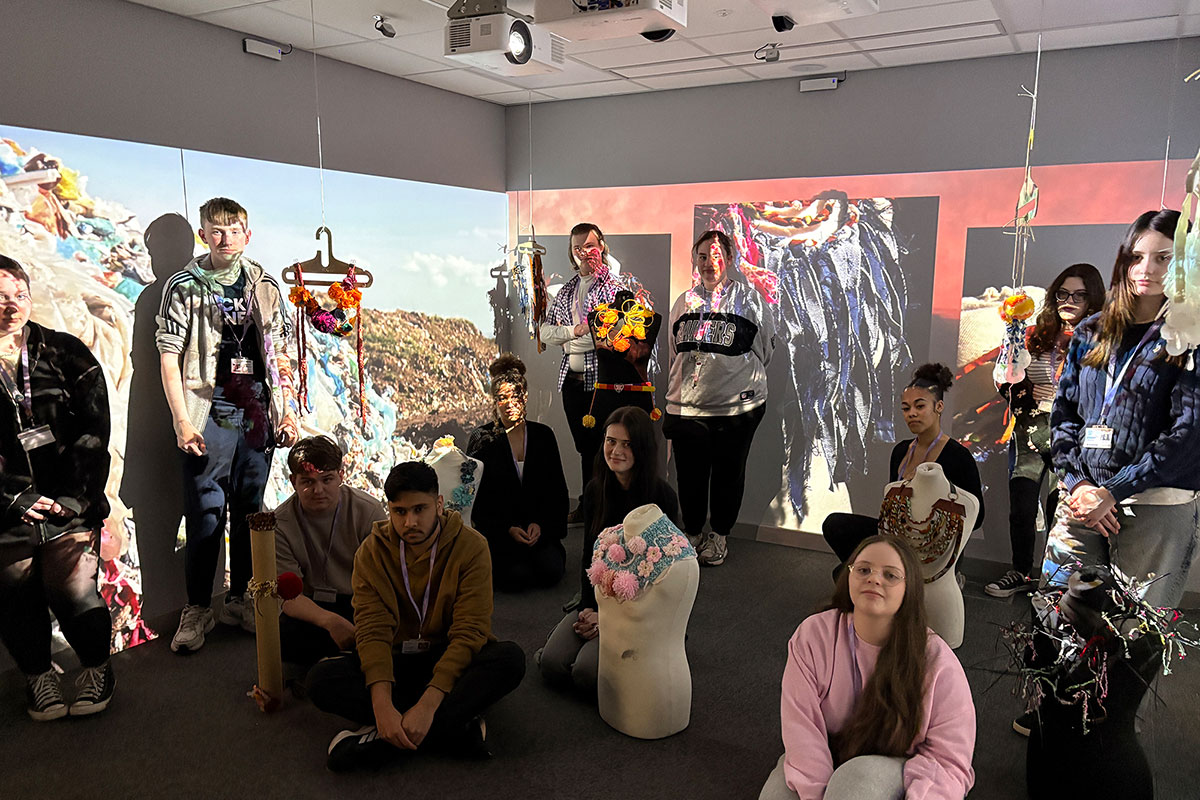1 in 2 school leavers reconsidering university as cost of living soars

- New survey from The Open University shows that 49% of 18–19-year-olds in England have reconsidered going to university in the last year, due to rising living costs
- 71% say they would consider distance learning if it meant saving money
- The Centre for Economic and Business Research (Cebr) estimates that studying with the OU could potentially help students save up to £6,555/year, accumulate less debt, and be able to earn whilst they learn
The Open University (the OU) has commissioned a new survey of 18–19-year-olds in England which shows that nearly 1 in 2 (49%) have reconsidered going to university in the last year, because of the rising cost of living. Nearly a third (31%) of school leavers believe university is not affordable, while a fifth (20%) are still unsure if they will go to university this autumn.
To avoid the huge costs associated with going to traditional universities, nearly three-quarters of school leavers (71%) would consider distance learning as a viable alternative, with just under 2 in 5 (39%) now wanting to have the ability to earn while they learn. A further 29%, are seeking a better balance between their education and other life commitments. Nearly a quarter (23%) want to live at home, rather than moving away to university.
Vice-Chancellor of The Open University, Professor Tim Blackman said:
“The fact that the cost of living crisis is forcing school leavers to reassess their higher education choices is very disappointing. At the Open University, we believe everyone should have equal opportunity to higher education. Our students can study flexibly through distance learning and consider employment options so they can learn and earn. A growing number of young students are realising that the OU is a great and affordable way to study for a high quality degree.
Iona Bain, an expert on young people’s finance said:
“It’s no wonder half of all school leavers now have doubts about going to university amid soaring tuition and living costs, mass disruption to education during lockdown, and a huge degree of uncertainty about what the world will look like in the future. When I speak to young people about their hopes and dreams, one theme comes up time and again – the desire to achieve financial independence.
“That’s why the next generation is willing to embrace alternatives to full-time campus-based education as they look for ways to earn while they learn, gain experience in the jobs market, and get a head start in the real world. Now is the time to have a serious conversation about whether full-time university education is right for everyone, and whether more young people would benefit from the flexibility and working opportunities offered by remote learning without having to forgo a high-quality education. For many young people, this could be a real – and rare – win-win scenario.”
Considering these concerns, findings published today by the Cebr reveal that OU students in England could save up to £6,555[1] a year and would accumulate less debt when compared to students at traditional brick universities.
The Cebr polled 1,720 students between the ages 18-24 in England, revealing:
- OU students can anticipate a significant 61% increase in earnings, equivalent to a weekly uplift of £136 (through being able to earn an income due to more flexible study arrangements).
- 85% of those surveyed thought switching to flexible learning would improve their mental health and wellbeing.
- 72% thought it would improve their engagement with their course content.
Employability of students from The Open University remains strong:
- More OU alumni (2022) credit their career progression or a pay rise to the OU than other UK graduates to their relevant Higher Education Institution.
- A 2019 report from Forward Role found that the OU produces more CEOs and MDs than any other UK university, including universities such as Oxford, Cambridge, and the London School of Economics.
Kianna Graham, who is currently studying Business and Management at The Open University, adds:
“For me, the biggest benefit of the OU is that I can earn whilst I learn. With bills on the rise, I have friends who don’t know how they’re going to cope with the cost of living away from home. I was able to save almost £10k in the past year which allowed me to get my driving license and have more money to spend on fun activities.
“I don’t think I’m missing out on a traditional university experience. I feel more independent because I’ve made a decision that suits my situation and will set me up for the future. The quality of education I’ve received has been great. The tutors at The Open University are on hand to help if you need additional support and the course has helped me secure a new role, which was aligned to my degree.”
To find out more about studying with The Open University, visit open.ac.uk. To start studying this October, the registration deadline is the 7th September 2023.
[1] The figure aggregates savings on tuition fees, potential earnings uplift due to the ability to work alongside studying, lower spending on essentials and considers the forfeiture of maintenance loans.











Responses